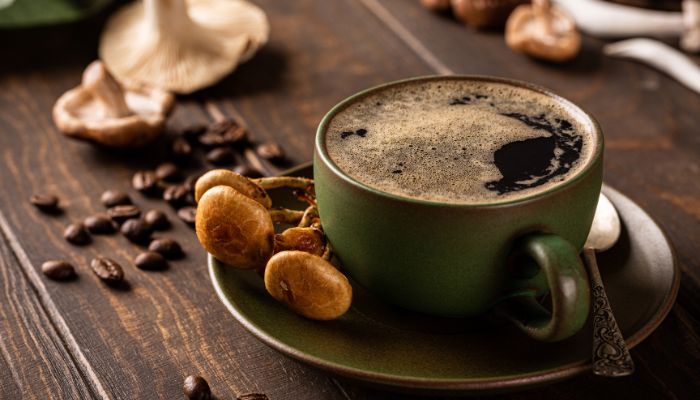The world of hot beverages is constantly evolving, with new trends shaping the way cafes and restaurants cater to their customers. From innovative flavours to sustainable practices, the demand for unique and high-quality drinks has never been higher. As we step into 2025, staying ahead in the competitive UK market means embracing these changes and offering customers an unforgettable experience with every cup. This blog explores the latest hot beverage trends that are set to define the year, helping businesses meet consumer expectations and drive growth.
Market Growth and Consumer Preferences in the UK
The UK’s hot beverage market is poised for significant growth, with global trends reflecting a booming demand for hot drinks. Revenue in the global hot drinks market is projected to reach $27.39 billion by 2025, with an annual growth rate (CAGR 2025–2029) of 8.55%, culminating in a market volume of $38.03 billion by 2029. While China is expected to generate the highest revenue of $9.6 billion in 2025, the UK market continues to thrive, driven by a combination of café culture, innovative offerings, and evolving consumer preferences. (Statista)
By 2029, the number of global hot drink users is expected to rise to 723.4 million, with a user penetration of 8.5% in 2025, projected to reach 9.9% by 2029. Additionally, the average revenue per user (ARPU) is anticipated to be around $49.53, showcasing the growing willingness of consumers to invest in premium beverages.
In the UK specifically, the hot drinks market is forecasted to reach £18.5 billion in revenue by 2025, fuelled by consumer demands for high-quality, ethically sourced, and innovative beverages. Cafes and restaurants are expected to play a significant role in this growth, as they continue to attract customers seeking experiences that go beyond just enjoying a hot drink.
Hot Beverage Trends
1. Top Hot Beverages in Demand
- Specialty Coffees

Lattes, cappuccinos, and flat whites continue to reign supreme in cafes and restaurants, but the rise of plant-based milk alternatives has reshaped customer expectations. Oat milk is particularly popular, known for its creamy texture and ability to complement coffee’s flavour. For example, UK coffee chain Pret A Manger offers oat milk as a standard option, catering to a growing demographic of vegan and health-conscious customers. Almond milk and coconut milk also remain favourites for those seeking lighter or nutty alternatives.
- Luxury Teas
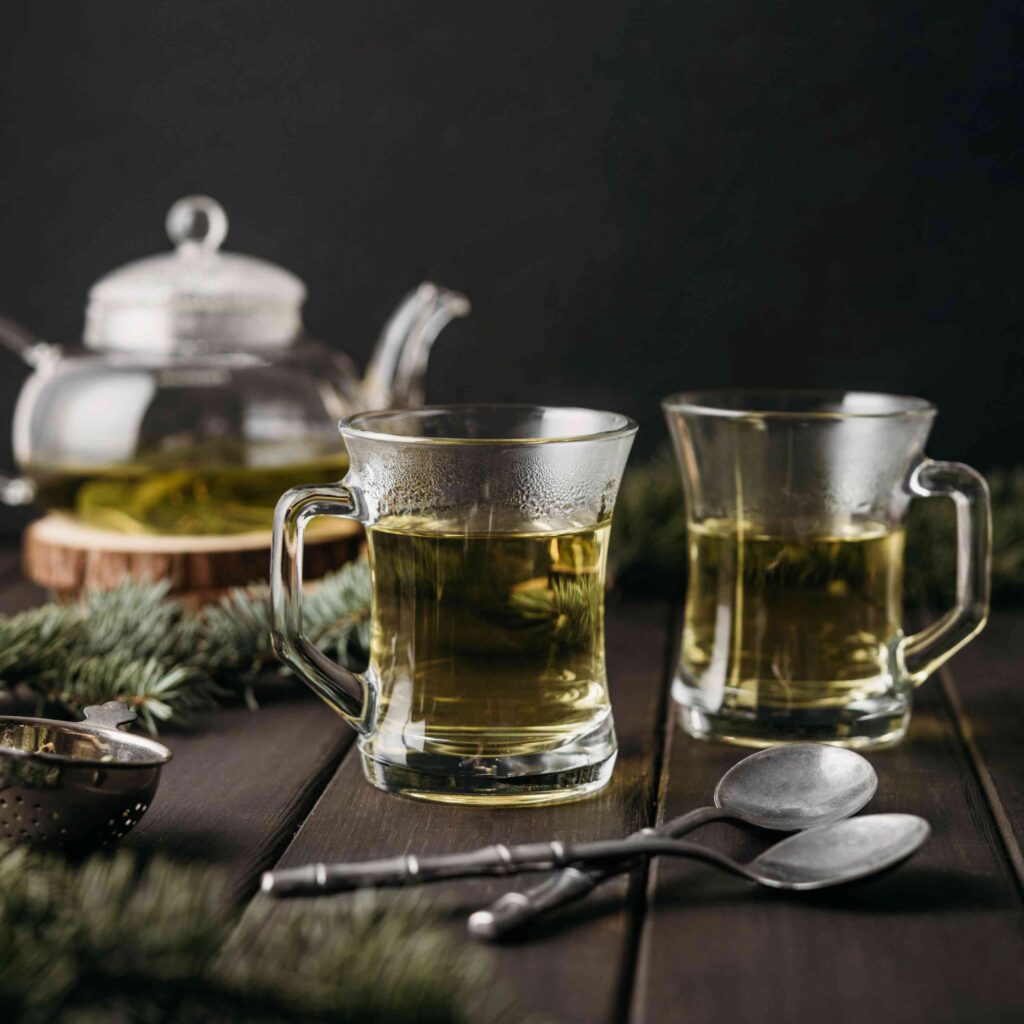
Tea offerings are no longer limited to traditional black and green teas. The demand for premium options like matcha, herbal blends, and teas with functional benefits has surged. Chamomile tea for relaxation or ginger tea for immunity appeals to health-conscious customers, especially during colder months. Teapigs, a UK-based tea brand, has capitalised on this trend by offering sustainably sourced, functional teas in biodegradable packaging, making it a hit among environmentally aware consumers.
- Hot Chocolate Innovations
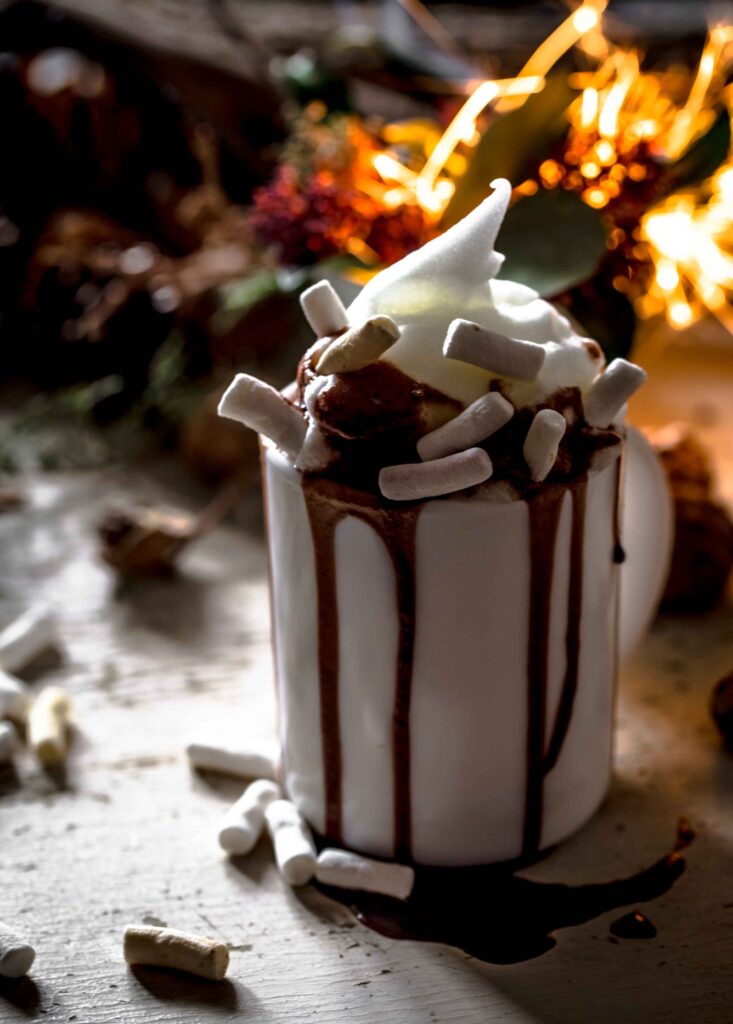
Hot chocolate has transformed from a simple indulgence to a luxurious experience. Customers now seek premium options made with high-cocoa-content chocolate for a rich, authentic taste. Flavoured varieties like salted caramel, orange, and even chilli hot chocolates have become crowd favourites. For example, Café Nero introduced a luxurious salted caramel hot chocolate during winter, which quickly became one of its bestsellers due to its unique taste and festive appeal.
- Chai Lattes
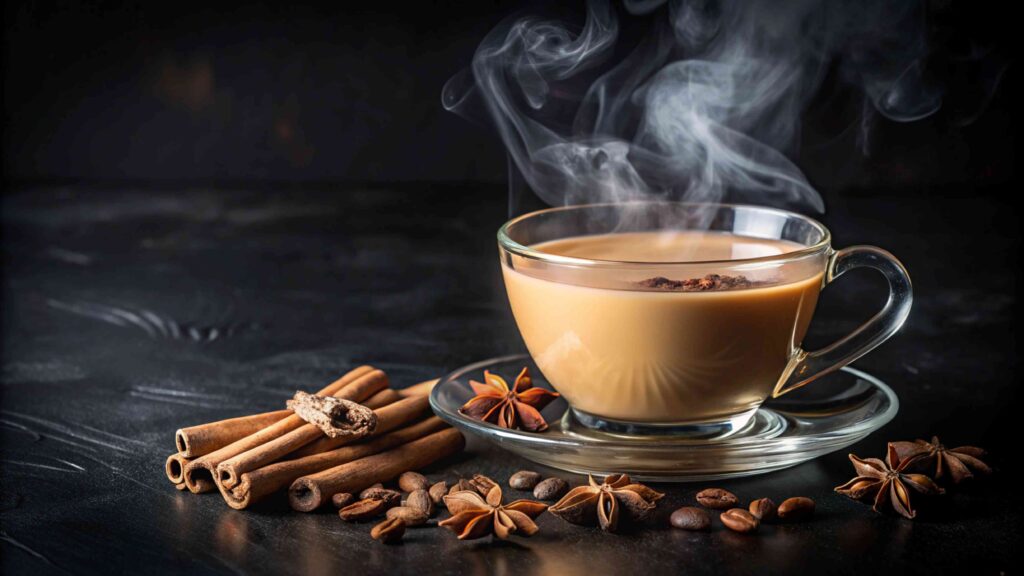
Spiced and creamy, chai lattes offer a comforting alternative for customers seeking caffeine-free yet flavourful drinks. With blends of cinnamon, cardamom, and cloves, chai lattes cater to those looking for a warm, soothing experience. Costa Coffee has embraced this trend by offering chai lattes on their regular menu, attracting customers looking for non-coffee alternatives that still deliver indulgence.
2. Focus on Health and Wellness
- Functional Beverages

The wellness trend has brought functional hot drinks into the spotlight. Adaptogens like ashwagandha, collagen for skin health, and vitamin-infused teas are gaining traction. Cafes can partner with suppliers offering these ingredients to meet customer demands. For instance, chains like Joe & The Juice now offer drinks with added functional benefits, such as stress relief or immunity boosts.
- Low-Sugar Options
Health-conscious consumers are opting for reduced-sugar beverages, creating demand for natural sweeteners like stevia and monk fruit. Offering unsweetened versions of popular drinks or allowing customers to adjust sweetness levels can make cafes more inclusive to those watching their sugar intake.
- Plant-Based Milk
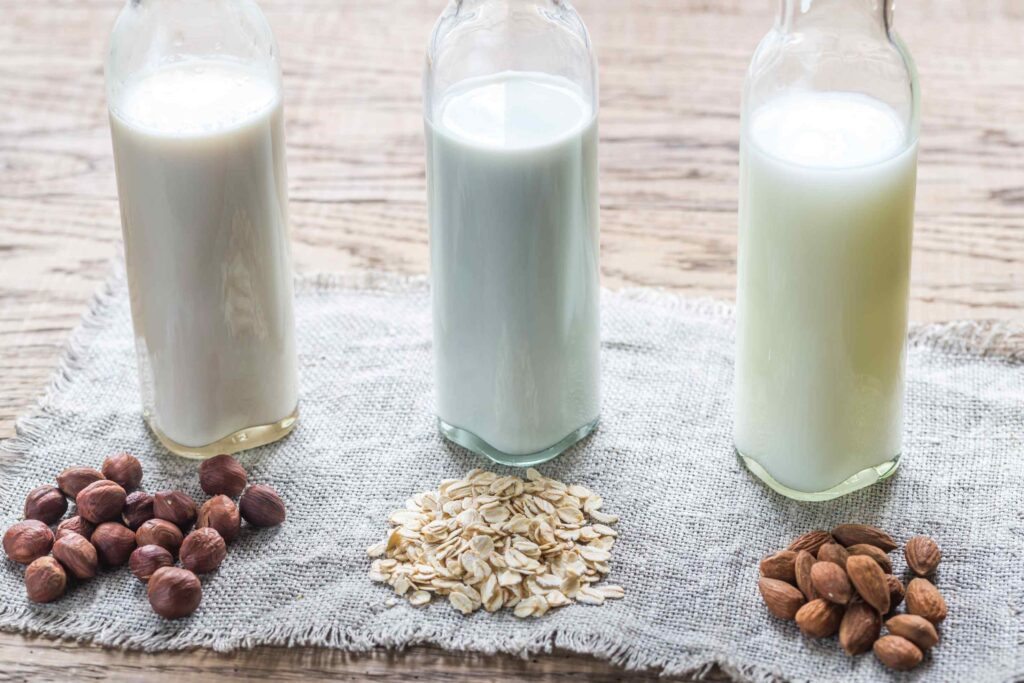
With over 65% of UK coffee drinkers having tried plant-based milk, this market is booming. Oat milk leads the trend, but soy, almond, and even pea milk are gaining popularity. Brands like Alpro and Oatly provide barista editions that blend well with hot drinks, making them ideal for cafes and restaurants aiming to attract vegan and dairy-free customers.
3. Sustainability and Ethical Sourcing
- Ethical Practices
Consumers are becoming more conscious about the origins of their coffee and tea. Products certified by Fairtrade, Rainforest Alliance, or Organic labels are increasingly preferred. Businesses that highlight these certifications in their marketing, like Starbucks with its ethically sourced coffee, can build trust with eco-conscious customers.
- Eco-Friendly Packaging

Sustainability extends beyond the drink itself. Cafes adopting reusable cups, biodegradable lids, and zero-waste initiatives resonate with environmentally conscious consumers. Many independent UK cafes now offer discounts to customers who bring their own cups, reducing waste while encouraging customer loyalty.
4. Innovative Beverage Experiences
- Customisation
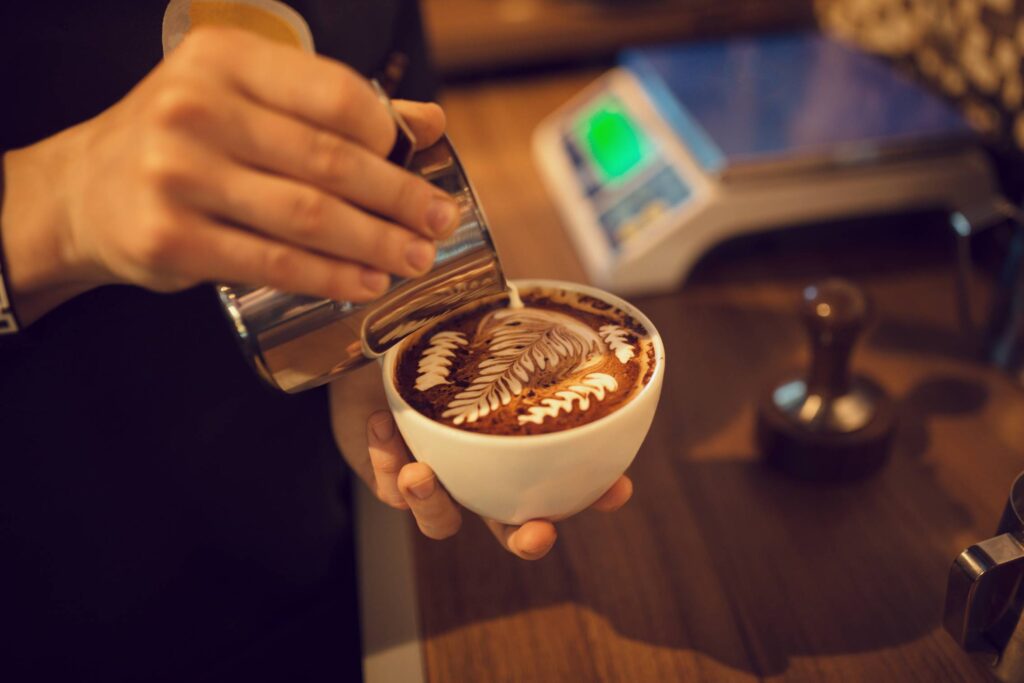
Personalisation is key to enhancing customer satisfaction. From customised latte art to allowing customers to create their own flavour combinations, offering options can make drinks feel more special. For example, independent cafes like Notes Coffee in London provide options for personalised blends or toppings, setting them apart from competitors.
- Nostalgic Flavours
Childhood-inspired flavours like malted hot chocolate or peppermint mocha evoke a sense of nostalgia. These flavours create emotional connections, particularly during the festive season, when customers seek comfort in their drinks.
- Seasonal Offerings
Seasonal drinks like pumpkin spice lattes in autumn and spiced apple tea in winter keep menus fresh and engaging. Starbucks’ Pumpkin Spice Latte has become a cultural phenomenon, showing how seasonal offerings can drive sales and create excitement among customers.
5. Rise of Premium Hot Beverages
- Specialty Coffee Roasts
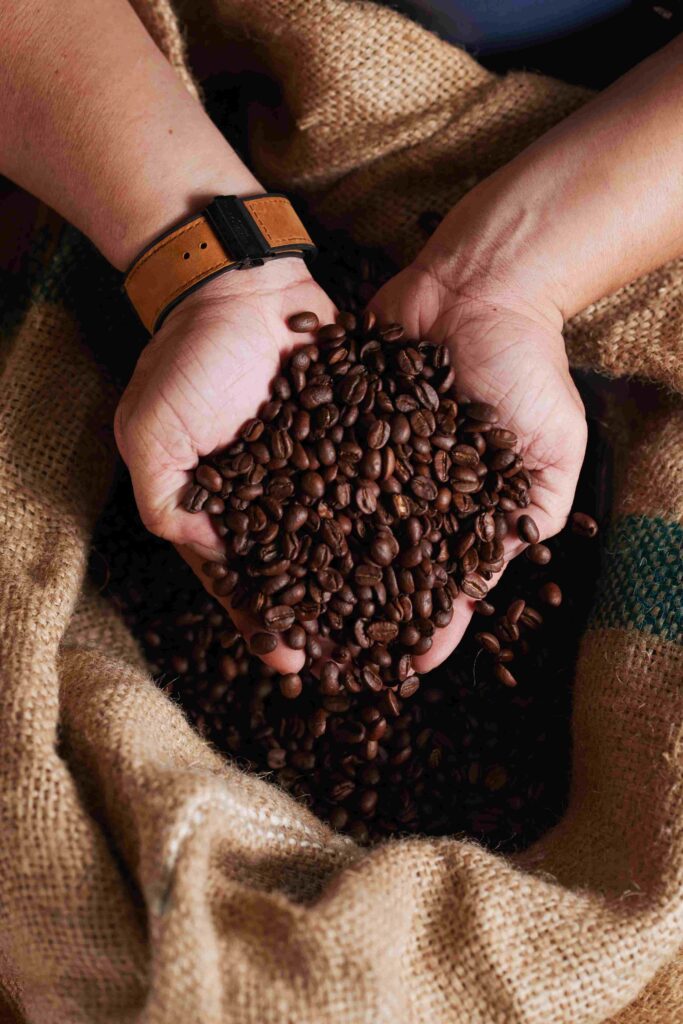
Customers are gravitating towards single-origin and micro-lot coffee roasts for their unique flavour profiles. These premium offerings highlight the craftsmanship behind the drink and justify a higher price point. Independent roasters like Workshop Coffee in London focus on sourcing small-batch, high-quality beans that appeal to discerning coffee drinkers.
- High-Quality Teas
Loose-leaf teas and exotic blends, such as butterfly pea flower and yuzu, are attracting adventurous tea lovers.
- Alcohol-Infused Hot Drinks
Evening menus are being enhanced with alcohol-infused hot beverages like boozy hot chocolates and Irish coffee. These drinks create an indulgent, social experience, appealing to customers looking for a unique treat during colder months.
Read More: Food and Drink Trends You Can’t Miss in 2025
Conclusion:
The hot beverage market in 2025 offers exciting opportunities for cafes and restaurants to grow and thrive by aligning with evolving customer preferences. From specialty coffees and luxury teas to sustainable practices and innovative experiences, staying on top of these trends can elevate your offerings and attract a loyal customer base.
To meet the growing demand for premium ingredients, eco-friendly solutions, and cutting-edge products, partnering with a trusted wholesaler is essential.
Whether you’re a bustling café in London or a cosy restaurant in Manchester, Pentagon Food Group provides reliable service, competitive pricing, and expert support to drive your business growth. Choose Pentagon Food Group as your trusted partner and watch your cafe or restaurant thrive in 2025 and beyond.

